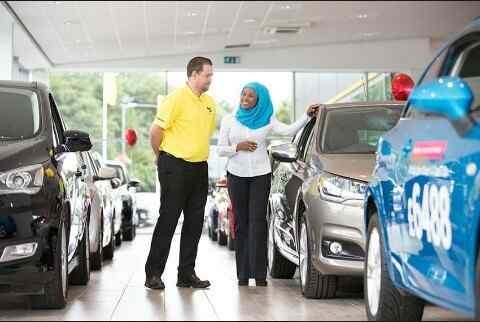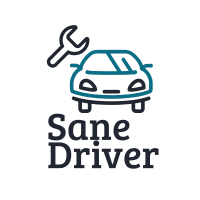Checklist for Buying a Used Car from a Dealer
Are you about to deal with a dealer? here is the checklist for buying a used car from a dealer. Just as it is easy to have a bad deal with a dealer, you can also secure a perfect deal.
Note that buying a car from a dealer does not automatically mean it is not a legalized stolen car, a rebuilt salvaged car, VIN cloned, or a curbstoned Car.

Moreover, it is advisable to hire a car inspection agency or an expert to inspect the car. But then, having the basic knowledge of what to check in a used car you are buying from your local dealership can be helpful.
An inspection agent may not always be perfect, which means your knowledge plays a huge role when buying a used car from a dealer.
Checklist for Buying a Used Car from a Dealer
Before you enter that deal, you might be interested in the tips to beat the salesman. Just like this, you can outsmart a dealer to buy a used car for your budget.
For now, below are the steps to buy a used car from a dealer:
Know the car you want
One of your used car buying checklists is to know what car you want. Ensure to establish the purpose for which you need a car.
Otherwise, when the dealership notices that you are not certain of what to buy, the salesman can try to talk you into buying anything they have.
Dealers are generally considered “liars” but when you are smart, you will beat their intelligence for good.
When you know what used car to buy, go to the dealer shop. Take a severe look at several cars if necessary and available.
If you do not already have a vehicle in mind, then you will be disappointed that you have to leave and return another day.
If you have varieties of used cars to pick from, take a brief survey around the shop.
If the seller is only pretending to be a used car dealer without a license, be careful not to end up with a Curbstoner. You could always research the dealerships before you proceed to do business with them.
On some occasions, private sellers disguise themselves as dealers to sell, sometimes for a commission. A private seller can only sell a limited number of cars per year, so they use existing dealerships to bypass this limit.
Some private sellers could be gathering the money to get their operation license while some employ this measure to evade sales tax on cars.
If you buy a car from an unlicensed dealer, or someone who lies about being a dealer, you could be buying an open title car, washed title, or they can even sell you a stolen car.
Recent studies show that it is smarter not to appear confused or too new when buying a car. Looking confused would be an impression that gives the seller more room to attempt to extort from you or sell you an illegal cloned car which you should learn to spot a cloned car.
Confirm dents, rusts and cracks
A dealer can be insincere to you. You might think that buying a used car from a dealer is the best. Unfortunately, the dealer is after profit alone.
Some dealers may not even be aware of problems with a particular vehicle, so is left for the buyer to figure out.
With the car in front of you, study it carefully. Question the dealer for every unusual thing you see, especially rusts, dents and cracks. Some damaged cars can be filled so you want to be careful not to buy poor-performing rebuilt cars.
Ensure to question the expert you brought with you. Let them know what you see in the car that bothers you and whether it is usual or unusual.
Understand that the details you can gather go a long way in helping the inspection agent too.
Ask questions about anything unusual in the car and find out why it is so.
The questions you should ask before buying a car should include transmission type, drive type, engine type, title availability, and odometer mileage.
When you are satisfied with the response(s), tick your checklist for buying a used car from a dealer.
Check and Mark the Vehicle History Report
Your checklist for buying a used car from a dealer must contain a vehicle history check. Get the VIN (Vehicle Identification Number) and look it up online.
A VIN checking website may not provide comprehensive information even after paying for the premium. Nonetheless, it helps to know the recent, but, perhaps, not very recent information.
You can VIN checking websites such as VehicleHistory, Carfax, and Vincheck. Some offer a free vehicle history report but you may have to pay to view more information. Always worth the money if you are certain to buy the used car from the dealer.
You want to be careful because if the car you are buying is involved in VIN switching, the vehicle history report will be false. Nevertheless, if the illegal switch was properly done, it will never affect you because the vehicle now uses a different identity.
Looking up the VIN will show the following:
- Title status
- Mileage
- Accident history
- Foremost owner
To check the VIN of a car, visit any of the VIN checking websites. You can use the ones suggested in this article. Simply enter the VIN of the car and click the corresponding button to retrieve data from the database.
You can find the VIN of a car in various places. Some of the places on a car that the VIN could be imprinted are the lower left part of the dashboard, the windshield, the engine block, the window side of the driver’s seat, rest wheels, and the back of the mirror.
Note that the information you get from the VIN check must match the information you get from the used car dealer. For example, the registered owner and mileage must be the same. You can use the mileage from the history report to know whether the odometer was modified.
Vehicle value
Is the vehicle before you worth the price the dealer values it? You can determine it after a close inspection. You can get an inspection agency or a mechanic to determine if the value of the car is worth it or not.
Another way to know whether a car is worth its value or not is to make findings online.
You can find out the cost of a new car of the same model and narrow the price to a used model.
Paperwork
When buying a used car from a dealer, it is important to check and verify the paperwork. You must be attentive to detail, bearing in mind that a dealer can be insincere.
Beginning with the car title, you want to be sure it is not a fake title. The bill of sale must also be authentic because it is easy to create a fake bill of sale. Pay attention to the license plates, and be sure they are not fake license plates/tags.
You may go as far as confirming whether the dealer has a fake insurance card or not. This does not really matter since you would be responsible for insurance after buying it.
You can also request the repair receipts of the car from the dealer. It is possible that the dealer or recent owner made repairs, and so you need the receipts to be sure no stolen parts have been used.
Car Mileage
The odometer of a used car can be rolled back. Sometimes, the dealer is aware, and sometimes not. Therefore, it is your responsibility to ensure that the mileage is correctly stated.
A vehicle with high mileage should have a lower value, but crooks can lower the mileage to sell it at a higher price.
You can try to tell if the mileage is correct by comparing the current odometer with what you see during the VIN check.
Test Drive
A test drive is usually the last checklist to confirm when buying a used car from a dealer. This means you have tested the vehicle and feel comfortable with its performance.
If you are new to driving, you can get an expert to complete the test drive. Testing a car to find faults can be quite technical. You must pay attention to detail. Listen to cranks and any strange noise.
You want to be sure the electronics are active, and that the gears, suspensions, and all are intact. Do not trust the dealer while test driving. The dealer will attempt to give excuses for faults you find.
However, you must hold your ground. If after the test drive, you do not feel comfortable with the car, you can leave. You can always test drive a car without buying it, only that is time-wasting for a salesman.
Meanwhile, to test drive a car, you must have a valid driver’s license before the dealer will hand the keys over. Some dealers will demand you make at least half of the payment before test driving.

Check Again
The test drive is done and dusted. Now, you want to have a quick look around the vehicle. Take photos of it and inspect the paintwork carefully again.
Check the headlights, bumpers, and even the undercarriage. It would not be right on your side to overlook at the damage. Besides, you can ask to pay less for every problem you find in the vehicle.
Do not get cheated because dealers are better at turning you against yourself when selling cars. Do not be talked into what you do not want.
Read Also: Steps to buying a car for the first time.
- 10 Common Mistakes When Bleeding Brakes - September 12, 2023
- Dash Cam That Records When Car is Off [5 Best] - September 11, 2023
- How to Know if Dash Cam is Recording [10 Methods] - September 8, 2023




